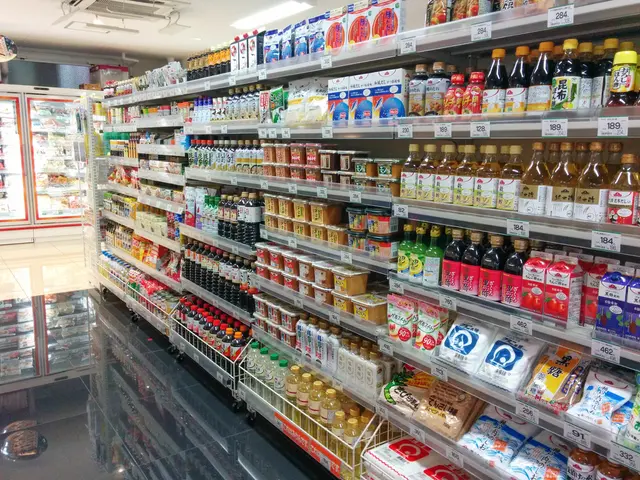Bureaus in Jerusalem Shrouded in Salt and Paper
In Jerusalem, a city with a population of approximately 1,000,000, around 40 percent of whom are Palestinians, the Israeli bureaucratic process for Palestinians has become an exhausting exercise in proving oneself present. This intrusive system is a tool of control, where even trivial details can be used to question their presence and undermine their residency rights.
Everyday life minutiae are scrutinized and weaponized through bureaucratic processes. Common documents used as proof of residency by Israeli authorities include rental contracts, electricity bills, GPS logs from smartphones, grocery receipts, and school homework. However, many mundane objects or actions can cause bureaucratic problems or trigger suspicion. For instance, a warm car engine, expired deli meat, clean laundry, wilting plants, or a misplaced saltshaker can all raise questions about a Palestinian Jerusalemite's residency status.
Israeli inspectors sometimes ask intrusive questions about the arrangement of everyday household items, such as “Where do you keep the salt and spices?” The answers to such questions carry high stakes, as inadequate proof of residency can lead to revocation of permanent residency status.
Yazan Khalili's 2018 project explores how Israeli bureaucracy affects Palestinian Jerusalemites' everyday behaviors and senses of belonging. Potential triggers of the Israeli bureaucratic apparatus can include various aspects of everyday life, such as leaving the country, missing an electricity bill, or marrying a Palestinian from the West Bank or Gaza. A single missing document or item out of place can damage a Palestinian Jerusalemite's case in the eyes of the Israeli authorities.
To avoid displacement, Palestinians in Jerusalem maintain files of rental contracts, utility bills, GPS logs, and other documents. Israel controls all movement, food, and supplies in and out of Gaza, making these documents crucial for Palestinians in Jerusalem to retain their residency status.
Israeli authorities unilaterally declared sovereignty over East Jerusalem and formalized it through annexation in 1980. The Israeli state violence operates at the smallest scales and spaces of everyday life, as seen in the invasive nature of residency checks on Palestinian Jerusalemites. Palestinians in Jerusalem often refer to the Israeli government as the "Paper State."
In summary, the Israeli residency checks on Palestinian Jerusalemites are highly invasive, scrutinizing everyday life minutiae and weaponizing them through bureaucratic processes. This system functions as a tool of control, where even trivial details can be used to question their presence and undermine their residency rights.
Table: Proof of Residency (Common Documents) vs. Objects/Actions Causing Problems
| Proof of Residency (Common Documents) | Objects/Actions Causing Problems | |--------------------------------------|--------------------------------------------------| | Rental contracts | Warm car engine | | Electricity bills | Expired deli meat | | GPS logs on smartphone | Clean laundry | | Grocery receipts | Wilting plants | | School homework | Misplaced saltshaker |
The Israeli bureaucratic process for Palestinians extends to scrutinizing not only common documents like rental contracts and electricity bills but also everyday objects and actions. Items such as a warm car engine, expired deli meat, clean laundry, wilting plants, or a misplaced saltshaker can trigger suspicion about a Palestinian Jerusalemite's residency status.
Inevitably, Palestinians in Jerusalem maintain extensive files of documents such as rental contracts, utility bills, GPS logs, and other proof of residency, for these serve as a crucial means for Palestinians to retain their residency status in a city where Israeli authorities control all movement, food, and supplies.






